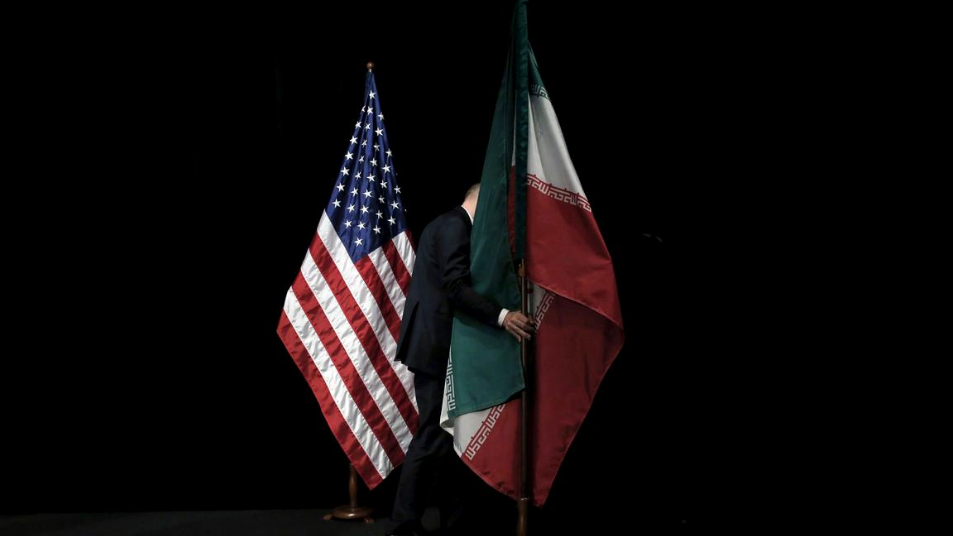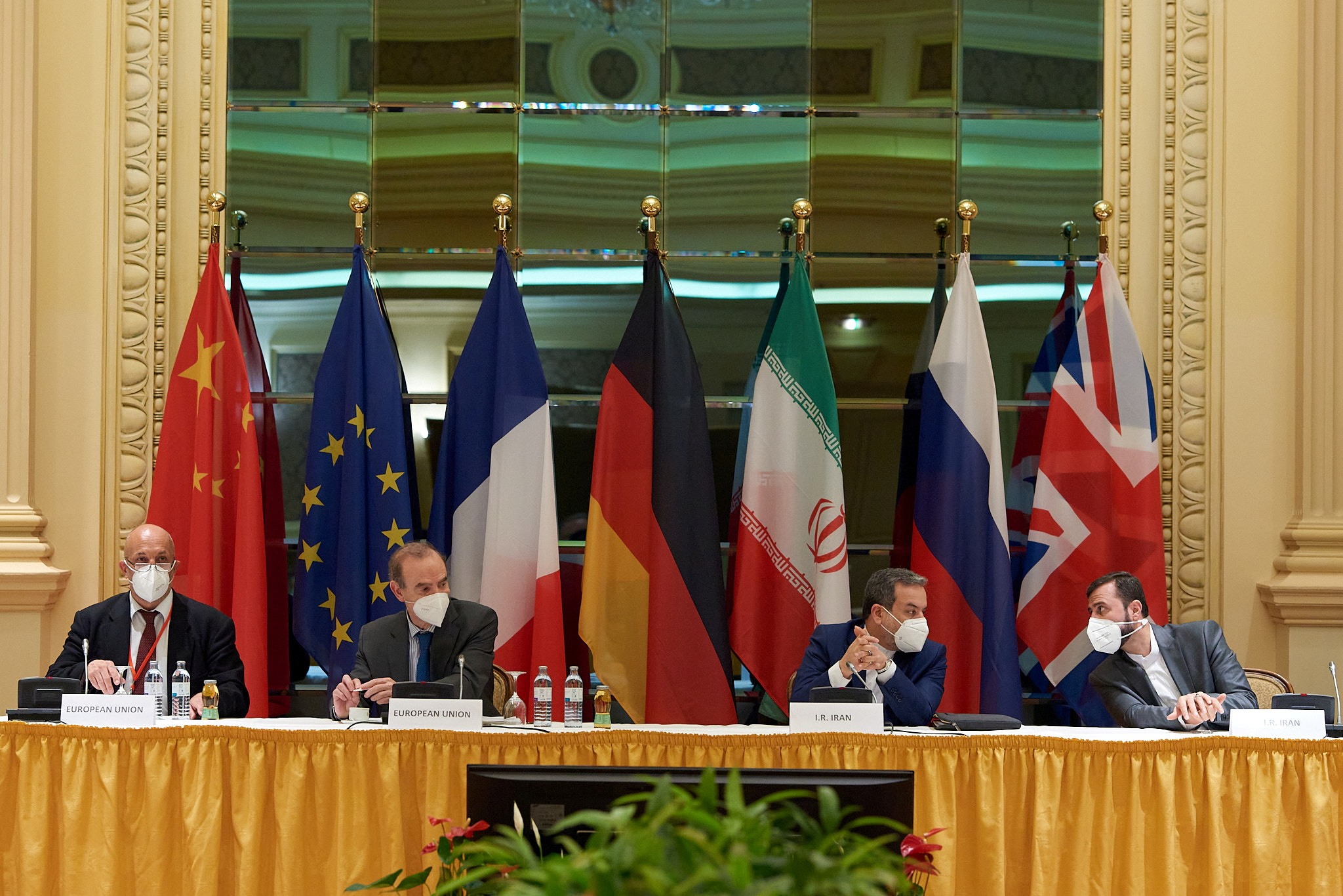
Editor's note: Hamzah Rifaat Hussain is a former visiting fellow at the Stimson Center in Washington and serves as assistant researcher at the Islamabad Policy Research Institute (IPRI) in Pakistan. The article reflects the author's opinions and not necessarily the views of CGTN.
In his remarks after the latest meeting of the JCPOA Joint Commission chaired by the European Union, Chinese envoy to the UN Wang Quan stated that Washington D.C. should stop "shilly-shallying" on Iranian sanctions and move decisively towards waiving them.
Wang's comments underline how unnecessary delays on a case study with lingering global and regional implications can prove disastrous for Middle Eastern security and the non-proliferation government. The international community cannot afford such callousness.
The reasons are obvious. Lingering suspicions, probable divides between moderates and hardliners in Iran and emerging security scenarios in the Middle East and South Asia characterized by troop withdrawals in Afghanistan, veiled admissions by Israeli intelligence officials on attacks on Iranian facilities and festering Israeli-Palestinian hostilities require early sanctions relief for a major regional player.
With talks on resuscitating the JCPOA deal flouted by the former Donald Trump administration with a unilateral withdrawal continuing slowly, the risk of emboldening the Iranian leadership into defiance with looming elections is high. Lack of sanctions relief mirroring the Trump era with a country in transition would only result in a more resolute and openly defiant Iran.
The delay in waivers is also inexplicable given that Tehran's demands are legitimate with no evidence suggesting lack of compliance as negotiations take place. Full compliance with the JCPOA on the other hand, as pointed out by Wang, is dependent on the U.S. lifting unilateral sanctions, including an unconventional arms embargo.
The optimism that the JCPOA talks hold in resolving the lingering nuclear program issue is threatened further by arms embargos which are inconsistent with both the agreement and relevant UN Security Council resolutions.
Thus, the continuation of such delays entails risks of stakeholders and parties unilaterally withdrawing from the JCPOA and jeopardizes the workability of future multilateral frameworks or agreements. For an administration seemingly committed to upholding multilateralism, this will be the direct cost.
If such scenarios do materialize, then the implications will not be confined to Iran, Washington D.C. or the P5+1 members of the JCPOA alone either. The policy of rapprochement towards any sovereign state entails mutual trust and relentlessly undertaking confidence building measures to allow both sides to the conflict or divide to edge closer to fully implementing peace frameworks.

European External Action Service (EEAS) Deputy Secretary General Enrique Mora, Iranian Deputy at Ministry of Foreign Affairs Abbas Araghchi and Iran's ambassador to the UN nuclear watchdog Kazem Gharibabadi wait for the start of a meeting of the JCPOA Joint Commission in Vienna, Austria, May 1, 2021. /Reuters
European External Action Service (EEAS) Deputy Secretary General Enrique Mora, Iranian Deputy at Ministry of Foreign Affairs Abbas Araghchi and Iran's ambassador to the UN nuclear watchdog Kazem Gharibabadi wait for the start of a meeting of the JCPOA Joint Commission in Vienna, Austria, May 1, 2021. /Reuters
Absence thereof can result in spillover effects which in Iran's case will be heightened hostilities of Western-led interventions in the Middle East or aversion to unconditional support of one state at the expense of the other igniting a tinderbox in the form of proxy warfare, conventional threats and arms build ups imperiling regional and global stability.
The world could quintessentially be back to square one on Iran, where any chances of rapprochement, negative or positive peace becoming increasingly elusive. No party can afford such a scenario.
Chinese State Councilor and Foreign Minister Wang Yi at the UN-backed Conference on Disarmament spoke about mutual restraint between Moscow and Washington D.C. having the potential to usher in multilateral disarmament. The sample principle of mutual restraint towards the ultimate collective goal of sustainable peace applies regionally in Iran's case.
Such restraint is critical given that domestically anti-Americanism is festering in Iran with the results of the upcoming elections projected to be defined by foreign policy priorities aligned with China and Russia at the expense of the United States.
Critical to note is that this projected alignment and Iran's domestic milieu is a direct result of respective U.S. administrations adopting coercive tactics towards the Islamic Republic with further delays in sanction waivers only contributing to the prevailing acrimony.
For regional and global peace, all parties concerned are expected to practice pragmatism towards reaching tangible solutions in the absence of zero-sum strategies at the expense of Iran's national security interests.
As such efforts are expected to come to fruition, unilateral bullying on part of the United States as the cause of the Iranian nuclear issue and mentioned by Wang Yi must not be complimented with ardent refusals of complete sanction waivers.
Previous hostilities and suspicions have resulted in socioeconomic implications for the Iranian population such as being stifled of purchasing medical supplies at the height of the pandemic during the Trump era. The international community must understand that callous teetering on the JCPOA has equal if not more wide ranging implications for Iran, the region and beyond.
(If you want to contribute and have specific expertise, please contact us at opinions@cgtn.com.)

